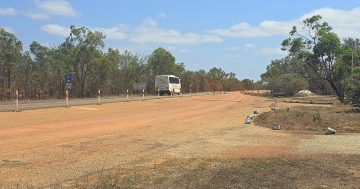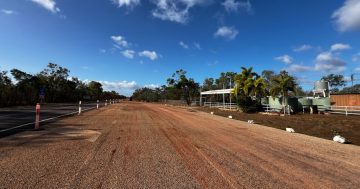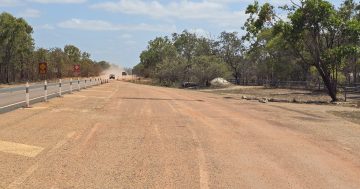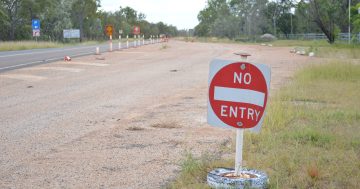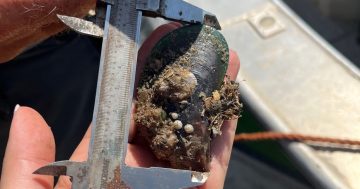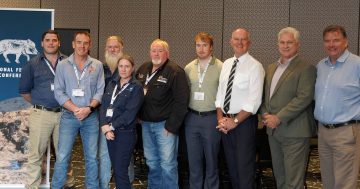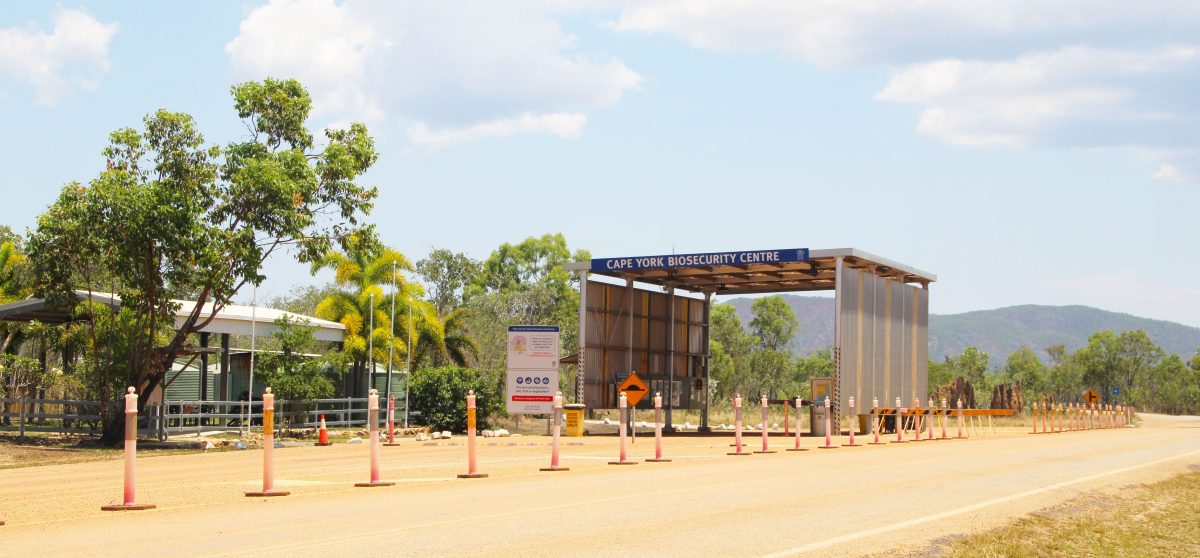
The Cape York Biosecurity Centre near Coen is being shut down on June 30.
CAPE York Peninsula will soon be left without a physical biosecurity presence, with the Coen facility to be shut down by the Palaszczuk government by June 30, prompting criticism from biosecurity experts.
The decision appears to be a cost-cutting measure and it was done without any real consultation.
When word spread last year that the Cape York Biosecurity Centre was earmarked for closure, several graziers and growers pushed for it to be kept open, only for their desperate pleas to fall on deaf ears.
When Cape York Weekly broke the news of the closure in September, the Department of Agriculture and Fisheries would only confirm that the centre’s long-term future was being reviewed.
While its decision has yet to be released publicly, DAF says it will shut the doors to the centre by the end of the financial year.
Sources say the government will hand the keys to the facility to the Southern Kaantju Traditional Owners. The land that the centre was built on is in the middle of a Native Title claim.
While the Coen centre was a physical traffic checkpoint, its main advantage was having local staff with decades of experience who could also travel the region to monitor for pests and diseases.
Those staff will now be moved to other parts of the state.

How Cape York Weekly broke the story in September last year.
The decision to shut down the Cape York Biosecurity Centre has been met with concerns from experts in the field.
Kevin Dunn is considered to be one of the leading biosecurity experts in the country.
He was the state government’s head of biosecurity from 1996 to 2006 and played a key role in setting up the Coen facility.
“The centre at Coen was installed in 1999. It was a major initiative of the then Labor government and Minister Henry Palaszczuk,” Mr Dunn said.
“I was the head of biosecurity in the Queensland Department of Primary Industries at that stage. We determined that as part of what was going to be called North Watch – where a number of staff employed out of Cairns and Mareeba offices were to be regular visitors throughout the Cape to do surveillance for pests and diseases – that we needed to establish an infrastructure centre in the northern part of Cape York.
“It was created to provide a place for future inspection services and to provide biosecurity information to visitors.
“However, it was also to be a base in the need for a major emergency response in case there was an incursion of a major disease like foot and mouth disease, or a major pest in the Torres Strait or in Cape York.
“We decided Coen was the standout place, particularly because it was a choke point – the only road out of the northern part of the Cape had to go through Coen. And we chose a site 20km to the north of Coen so we weren’t interfering too much with local traffic.”
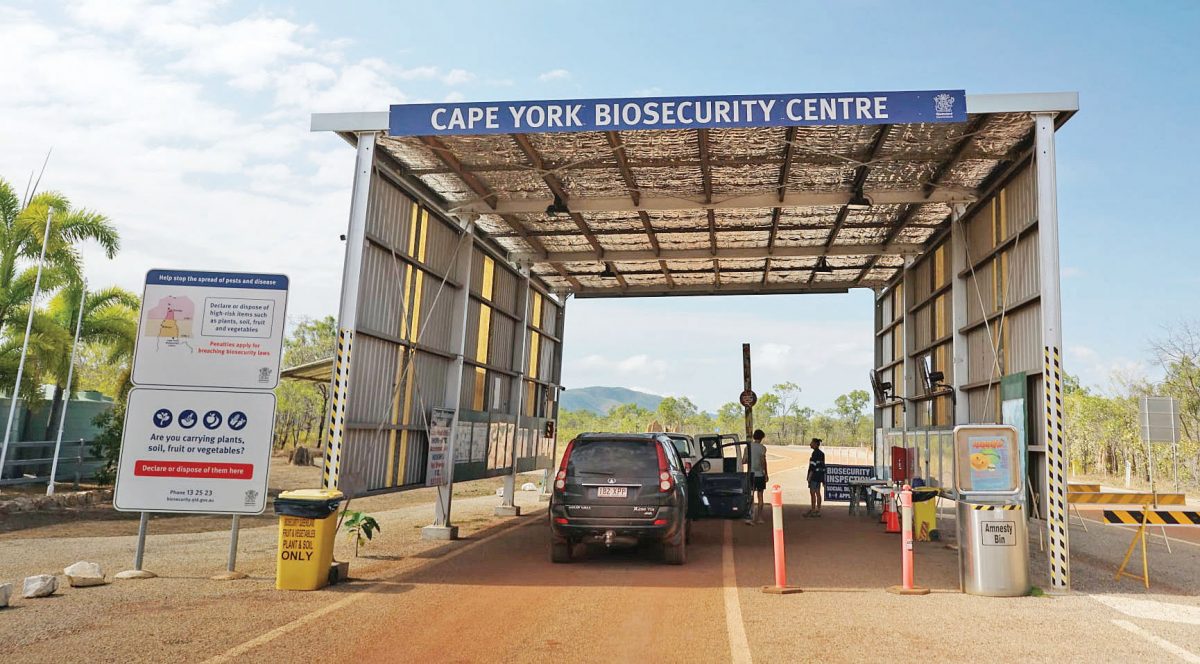
The location of the Cape York Biosecurity Centre was strategically picked for its geographical advantages.
Mr Dunn said Far North Queensland faced serious biosecurity risks due to its proximity to Papua New Guinea.
Ocean currents also carry debris to our coastline and pests can sometimes be detected in driftwood, which is often picked up by tourists.
“One advantage of the facility in Coen was that it was 400km from the Tip of the Cape,” Mr Dunn said.
“By having the centre there, it would give you the ability to draw a war line, if you like, in the event of an outbreak further up. You could have a solid defence of stopping the pest or disease from going further south.
“This is important from both a state and national perspective.
“If you can contain a disease and stop it from spreading, you can show to overseas markets that it is contained to one part of the country.”
The red banded mango caterpillar is a major concern for growers in Lakeland and the Atherton Tablelands.
The Coen centre has previously stopped incursions from going south with its traffic stops.
Mr Dunn said traffic numbers had only increased since the opening of the centre in 1999 and that biosecurity risks were greater than ever before.
He said more transparency was needed from Biosecurity Queensland about its plans to deal with an area the size of Cape York.
“From my discussions with industry contacts, nobody has seen in any great detail what alternative infrastructure and programs are going to be put in place north of Coen,” he said.
“I’m not aware of the reasoning behind the closure other than the fact that I have learned informally that there was a wish to save money.
“That’s a concern to me.”
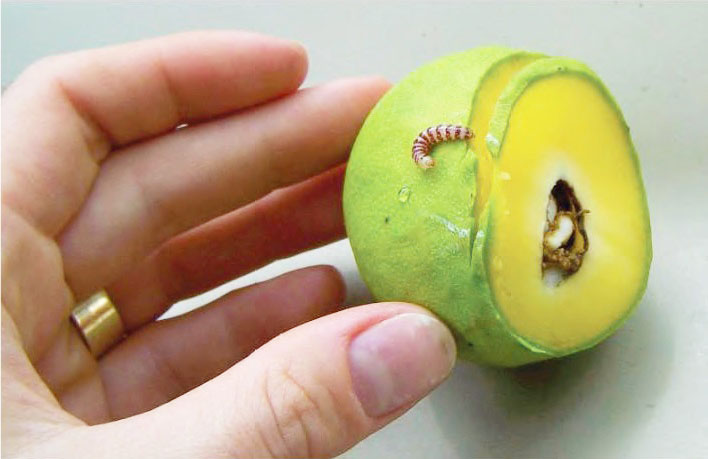
The red banded mango caterpillar is considered a major threat in the Far North.
In a statement, a spokesperson for Biosecurity Queensland confirmed the closure and said there would be staff in Bamaga, but the nearest office would be in Mareeba.
“The Queensland government has invested $3.7 million over five years into ensuring the Torres Strait and Cape York Peninsula are prepared for biosecurity threats,” they said.
“This has included the implementation of the Far Northern Biosecurity Initiative.
“The next phase of the FNBI is about to commence, aligned with the Queensland government’s $22 million investment in emergency animal disease preparedness, which has added 10 new biosecurity officers across the state.
“The FNBI’s more targeted and efficient way of delivering biosecurity services has a strong emphasis on stakeholder engagement, education and partnership.
“As part of these reforms, the Cape York Biosecurity Centre will cease operations on June 30, 2023. The two employees at the site will be redeployed within DAF.
“Biosecurity Queensland has bolstered its commitment to the front lines of Cape York biosecurity, appointing new team members in Bamaga and Thursday Island over the last 12 months.”
The spokesperson would not confirm what would happen to the Cape York Biosecurity Centre’s facilities after June 30.
“The land on which CYBC is situated is subject to an ongoing Native Title claim,” they said in a statement.
“The primary function of CYBC is the inspection of private vehicles. However, biosecurity threats to the region have become increasingly complex and present through a variety of avenues.
“Biosecurity Queensland has determined that a range of other biosecurity measures will be effective in protecting the Far North.”


